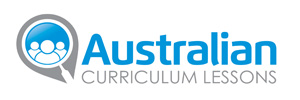Collaboration is a critical part of teacher learning. We appreciate the time to speak with our peers formally or informally and studies show that this collaboration is beneficial to our practice. Finding time to do it more often and more effectively is important.
Collaboration can come in many forms including but not exclusively:
- Team teaching
- Mentoring
- Professional learning communities
- Collaborative moderation
- Team meetings
- Social media
- Classroom observations
- Informal discussions between teachers
There is plenty of research to support the effectiveness of teacher collaboration and its positive impact on teacher learning.
“Teaching should be recognised as engaging in continuing inquiry into practice, and this inquiry should be recognised as strongly collegial and collaborative in nature.” Professor Diane Mayer Associate Professor Margaret Lloyd October 2011, AITSL
“Focusing on building teacher teams and providing meaningful ways for teachers to work together on the tough challenges they encounter can lead to substantively important achievement gains.” Jason Grissom, associate professor of public policy and education at Vanderbilt University
“Thus, not only is collaboration good for teachers—quite possibility by fostering teacher learning—but it is also positively related to student achievement.” Yvonne L. Goddard Roger D. Goddard University of Michigan Megan Tschannen-Moran College of William and Mary
At Port Broughton it is important to continue to develop our collaborative practices.
- Classroom observations and the discussions that arise from these are important learning opportunities for teachers to learn from each other. This is not limited to just being observed but also includes the act of observing others teaching.
- Contributing to and engaging in the discussions around formative assessment. This may be in face to face settings or through the blog. Actively engaging in these discussions by sharing practice and asking questions of others will develop our practice in this area.
- We will be continuing our professional discussions at whole staff meetings around pre determined topics. At different times staff are asked to present at these meetings. Being prepared to share practice in these types of environments is critical. Knowing what others are doing allows teachers to approach individual teachers (at any time) to collaborate and discuss aspects of professional practice. In weeks 6 and 7 we will be continuing our discussion of formative assessment during staff meeting time.
- Collaborative moderation is a process we will be discussing and using over the next 18 months at PBAS. Discussing student work in a collaborative manner to ensure accurate assessment as well as develop teacher knowledge of the achievement standards and quality assessment tasks.
- Our Site Improvement Plan groups around Literacy/Numeracy, Wellbeing and Teaching & Learning will allow teachers to collaborate on common focus areas, develop a deeper knowledge and move these forward.
- Individual teachers are collaborating with others outside of our school. This is a vital form of collaboration. Examples of this are teachers working with peers from other schools through linked SACE programs or via social media.
- Individual teachers are collaborating with their peers at PBAS. This is a vital form of collaboration. This formal and informal collaboration builds a sense of collegiality amongst staff and helps to develop and improve pedagogy.
If you are looking for more about collaboration click on the link below and read a great post by a teacher who did not collaborate in his first year and wishes he did. What would he do differently?
“I have witnessed a general sense that teachers, when it comes to their performance in the classroom, tend to stick to themselves. This could be because of self-consciousness or embarrassment, but the attitude of professional privacy is not conducive to professional development.” Ben Johnson – Administrator, author and educator





